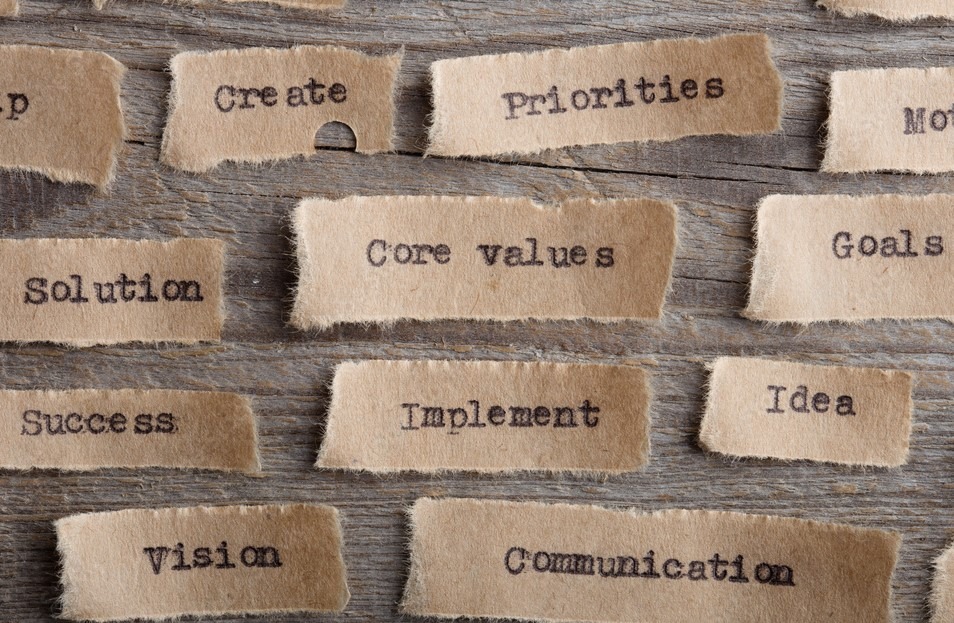When we trust another person, we are oh-so vulnerable to getting hurt. But here’s the thing: Lifelong mistrust almost guarantees lifelong unfulfillment. As humans, we are naturally hardwired for connection. As such, choosing the path of relentless mistrust isn’t really in our best interests. It’s important that we learn how to leap forward with some faith. Equally as important is learning how to build our own trustworthiness so that others can take that same leap with us.
A SPECIAL NOTE
This blog isn’t intended for readers who are experiencing abuse in any of its forms. Some signs of abuse include (but are not limited to): actual or implied threat of physical aggression (including harm to self, others or pets, or damage to property), forceful and unwanted sexual touch, being told what to wear, belittling/degradation, public humiliation, social isolation, and constant monitoring. Such behaviours suggest more is at play than trust issues. Please contact our office for details about specialized support with domestic violence.
NOT “ALWAYS” AND NOT “NEVER”
Our early life experiences (especially those involving caregivers) play a pretty big role in determining how trusting we are of others. Some of us had experiences that taught us to let almost anyone in (fluid boundaries), while others learned to shut everyone out (rigid boundaries). One person might find they allow themselves to get repeatedly burned by others. Somebody else might leave no room for loved ones to make a mistake before cutting them out. Neither extreme is healthy.
Basically, life experiences can set us up with a tricky mindset that makes achieving balance in certain areas (like trust) difficult. Therapy is one way that we can go about challenging such limiting beliefs about ourselves, others, and life. Managing our thinking traps and reprocessing early events that shaped such beliefs can help us find our healthy middle grounds.
CHECK YOURSELF
It seems unfair to expect from others what we are unable or unwilling to give to them. Indeed, there exist arguments that support the practice of letting go of expectations in general, but that’s maybe another topic… Ultimately, we cannot control anyone else or make them more trustworthy. What we can control is if we act in ways about which we’d feel proud at the end of the day, regardless of outcome. When we can honestly tell ourselves “I did my best”, others’ opinions and reactions are less likely to ensnare us. We develop self-trust, and an empowered sense of completeness within ourselves.
I introduce this (complex) topic of trust with hopes of increasing your awareness of the level of trust that exists within your relationships. I invite you to first and foremost reflect on how you demonstrate your own trustworthiness with others. It really does take just one person to change the dance within a dynamic! I’m not saying that one person’s growth will necessarily increase the overall trust within the relationship (though that’s certainly a possibility). However, it can help the “stuckness” a couple might be experiencing and reveal the likelihood of a fulfilling shared future.
BETRAYAL
Betrayal isn’t always about sex or emotional affairs, though those are some extremely damaging forms of it. Different types of betrayal include ongoing coldness, contempt, missed bids for connection, lack of follow-through on agreements, comparisons of your partner to someone else (even if it’s just in your own mind), general withholding of information, and just plain selfishness.
Even something as simple as not filling up the gas tank on your way home one evening, knowing your partner will have to leave earlier the next morning to do so, could be considered a lower-level betrayal. Or ignoring small “bids for connection”, such as not responding to a partner’s passing comment about a song that’s playing. You can maybe see how betrayal, to one degree or another, exists in every relationship.
Basically, trust is slowly built (and broken) in very small moments, every day. Unaddressed lower-level (i.e. mindless) betrayals have the power to accumulate and leave impacts equating to that resultant of big betrayals. In these instances, more patience and effort are required by both parties to effectively repair resulting damage. It is much more favorable for a couple to communicate about and repair little betrayals quickly and often.
EMOTIONAL BANK ACCOUNT
In every relationship, there exists an Emotional Bank Account (EBA). The more you’ve built up the savings in your shared EBA, the more your relationship is buffered from lower-level betrayals. That gas tank incident will be a trivial withdrawal in an account that has an amass of “money” in it. If, however, you find that the smallest issues are turning into big blowouts, I’d venture your EBA is nearing overdraft. At that point, it’s time to do the last thing you feel like doing- focus your time and energy into replenishing the savings.
Just how does one do that? First, stop the withdrawals by picking your battles. Next, invest into the EBA by looking for and communicating the things you appreciate about the other person. Third, actively look for and turn towards the other person’s “bids for connection”. Science shows that it takes five positive interactions for every negative one for the EBA to remain in good standing. That’s a minimum. Remember, when it’s hardest to do these positive things is often when it is most needed. Building trust involves showing the other person that we are on the same team as them, even when we disagree.
FIERCE LOYALTY
Let me be clear: Fierce loyalty isn’t about putting up with mistreatment. While I can’t dictate anyone’s personal values, I encourage you to prioritize your physical, mental, and emotional safety above loyalty to someone who is jeopardizing those things. If fear exists within a relationship (you know, that sense of walking on eggshells), then safety does not.
“Fierce loyalty” as I write about it, is a mindful practice that involves reflecting on our interactions with all others. Anyone can serve as a threat to our partnerships, even if they’re not a candidate for our romantic affections. Asking ourselves how comfortable we’d be if our loved one was privy to our interactions with any given person is one way to gauge our loyalty. And yes, simply venting about our partner to a friend can be a violation of that loyalty.
When it comes to building trust, communications about our loved ones are just as important as communications with them. This concept doesn’t mean we have to lie or deny our honest thoughts and feelings. It does mean we have to put in some extra work to communicate them in respectful ways. It also means that we need to process our issues with supports who can hold some respect for our partner.
NOTICE GOOD INTENTIONS
Our brains are kind of hardwired to find what we’re looking for. Building trust requires us to slow down and seek to understand our partner’s good (or at least “not bad”) intentions. When upset, we can renew our faith in the other person’s trustworthiness by asking ourselves: “What is the most generous assumption I can make about so-and-so right now?”
IT’S NOT ABOUT AGREEMENT
We can’t possibly like or agree with 100% of our partner’s choices. In fact, science shows that we’ll only see completely eye-to-eye 31% of the time! No matter who you’re with that number stays about the same. What differs across relationships are the kinds of issues about which couples agree/disagree. These stats suggest that roughly 69% of the time, we’ve really got to work to see where our partner might be coming from.
In healthy relationships, couples understand that the goal of communication is to understand and stay connected, not to reach agreement. When we invest into learning about our partners’ “inner worlds” this task becomes easier. I’m talking about studying the other person’s likes, dislikes, wants, needs, values and beliefs. But it’s not enough to leave it there. We also need to invest in learning about the life experiences that have shaped these things for that person. Approaching conflict in this way turns us into collaborators, rather than competitors with one another. It builds compassion and empathy, which are essential components of trust.
CASH IN YOUR OVER-TIME
Working as a detective 24/7 is exhausting. Conversely, when trust is present, our mental and emotional energy is saved. Making decisions based on incomplete information is scary, but it can also be very freeing. When we act from a place of trust, we start living life instead of just planning it out.
Of course, the topic of trust is highly complex. If you’re experiencing confusion and distress around this issue, you may want to address it in a specialized manner with one of our psychologists. Book online, give us a call, or drop by our office for more information about our risk-free consultations 😊
Shayla Drewicki, MC, RPsych
References
Gottman, J. M., & Silver, N. (2012). What makes love last? How to build trust and avoid betrayal. New York, NY: Simon & Schuster.












